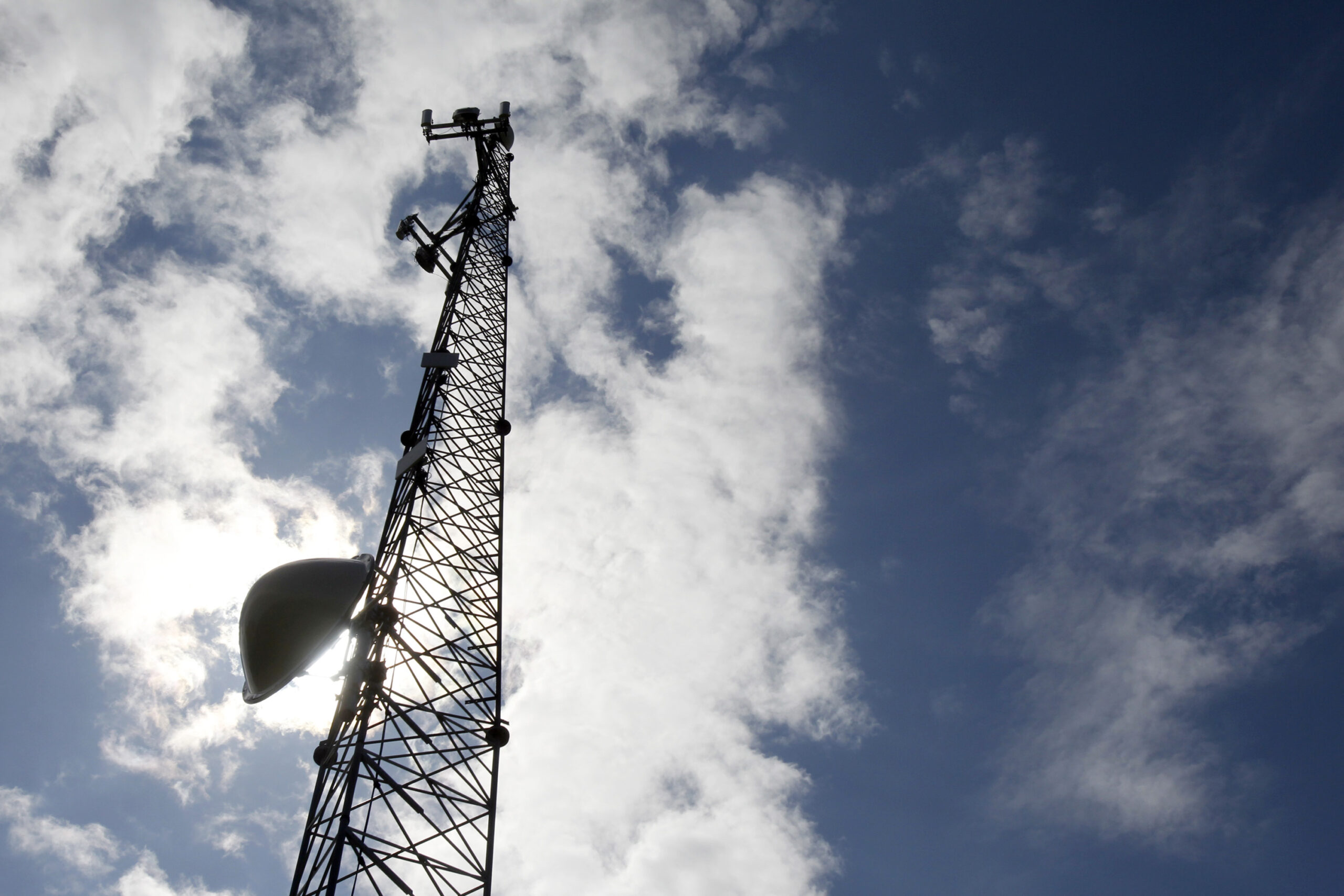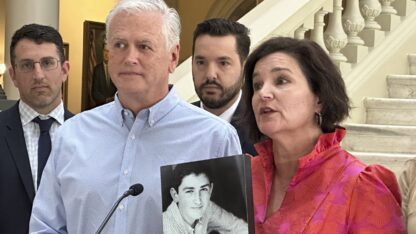WABE’s Week In Review: Primary Day Mess, State Lawmakers’ Busy Week And A Half, And Calls To Defund Police
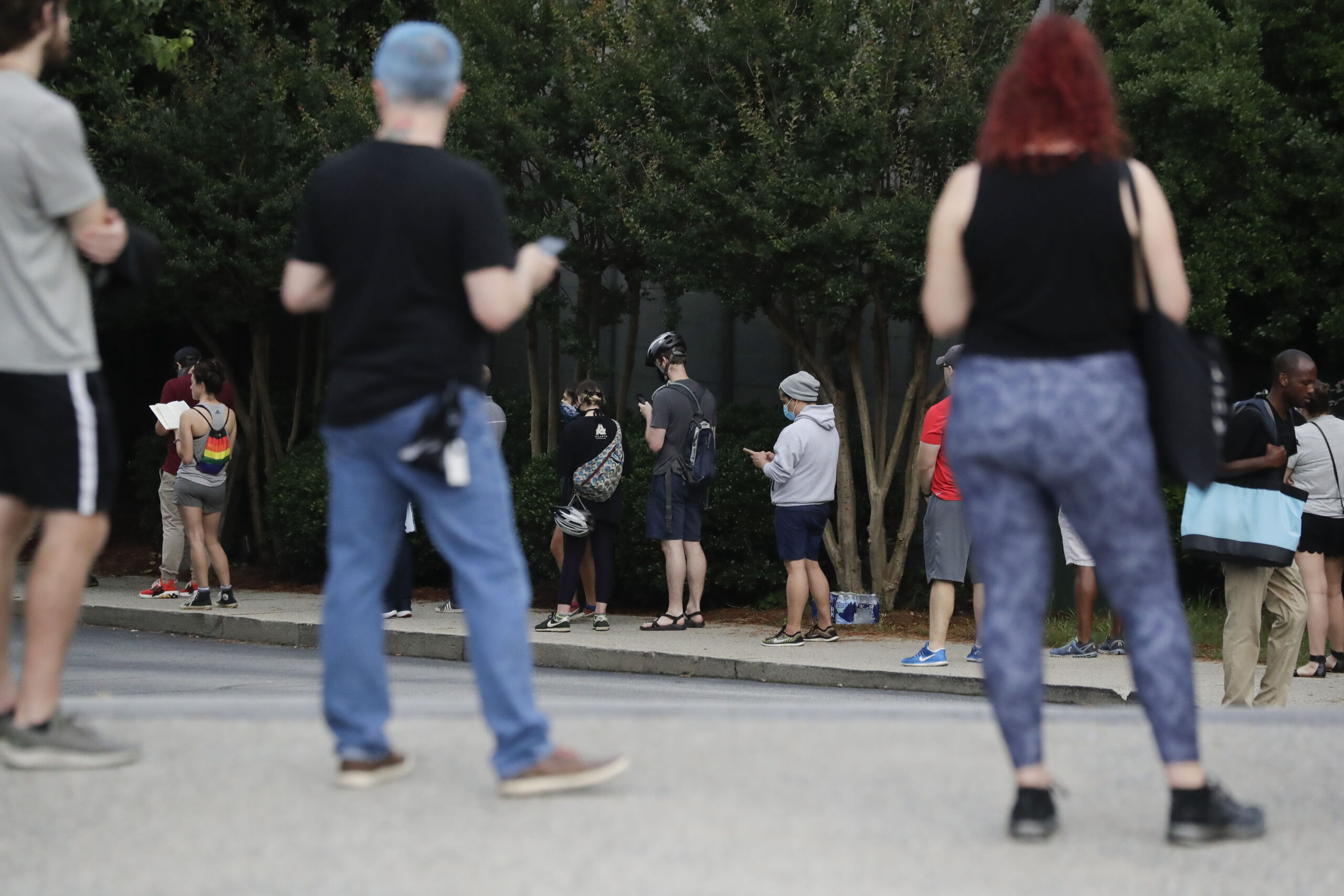
People wait in a line to vote in the Georgia’s primary election at Park Tavern on Tuesday in Atlanta.
Brynn Anderson / Asscociated Press
On the Week in Review for June 6-13, WABE’s Managing Editor Alex Helmick showcases stories from our journalists on the primary debacle here in Georgia: long lines, confusion at voting locations, inexperienced poll workers, among other issues.
WABE heard from so many of you about the difficult circumstances at voting locations. We also looked into why this happened, who is to blame and what is being done about it for the August runoff and the November General Election.
Who is to blame?
Former gubernatorial candidate Stacey Abrams, who also created the voting monitoring group Fair Fight, blames Secretary of State Brad Raffensperger.
“The Secretary of State has the obligation to do the job of making sure that every county works,” said Abrams, who was part of an Instagram chat this week by the Leadership Conference on Civil and Human Rights. “Because otherwise, we live in different counties in different democracies. And where we live in the state of Georgia should not determine the amount of democracy we’re entitled to.”
Raffensperger has launched an investigation of voting problems in Fulton and Dekalb counties. His office is said it was actually the responsibility of the counties to be prepared.
“The counties were supposed to have backup paper ballots and at many precincts, they didn’t,” said Gabe Sterling is with the Secretary of State’s office. “It’s a state rule: 10% of the voting population. I mean, we’ve laid out all the rules, we gave them all the equipment, we hit every mark on this thing. We did four rounds of training pre-COVID.”
But Fulton county’s elections director Richard Barron said a lot of delays there were due to glitches with the state’s new voting machines and safety precautions around COVID-19.
“We need to make sure that we all have the resources to go forward, and we need the Secretary of State’s office to be involved in that process and show some leadership and not point the fingers at the counties and view us as partners in this process,” said Barron.
How does it get fixed?
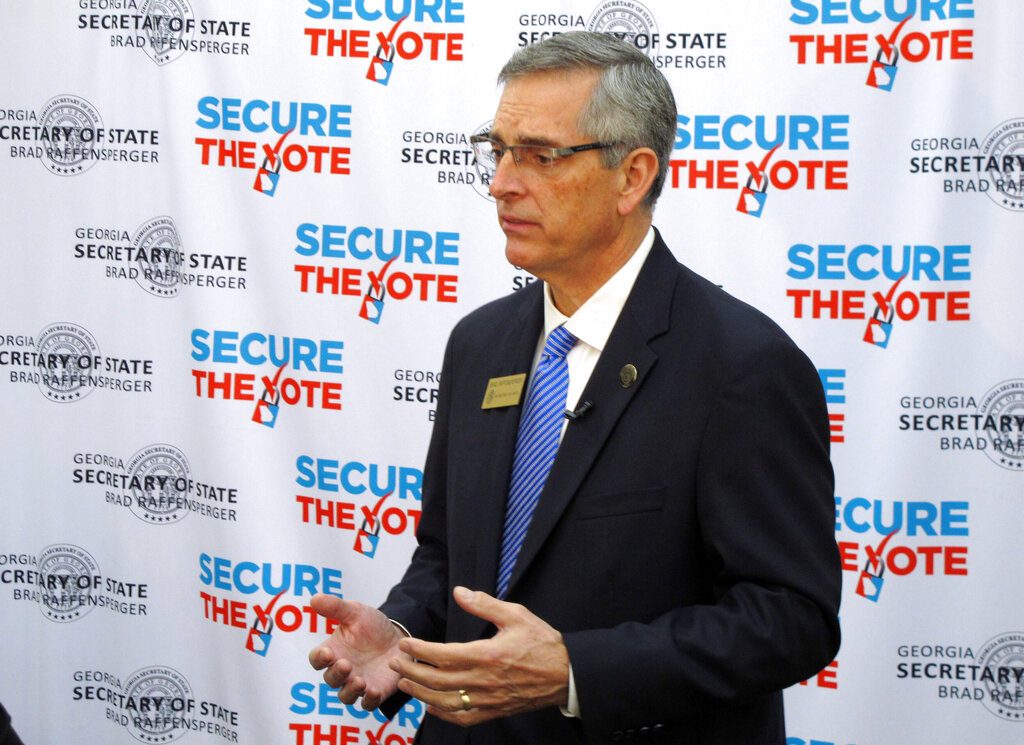
State lawmakers return to the Capitol to finish the session that was suspended due to the coronavirus. One of the bills they could consider is Senate Bill 463, designed to reduce long lines. But Republicans and Democrats are divided on whether it would actually work or lead to more confusion.
The bill, which is backed by Secretary of State Brad Raffensperger, won Senate approval in March just 10 days after it was introduced. But the vote was partisan.
“Each and every Democrat state senator voted against taking action to fix the problem, solely because I and Republicans were proposing it,” said Raffensperger.
Democrats said the bill was rushed and their input was not included. Senator Gloria Butler, a Democrat from Stone Mountain, said on the Senate floor back in March that splitting precincts would mean some people who have voted at the same place for years, might be sent somewhere else.
“To us, it’s nothing if we have to go someplace else to vote,” said Butler. “Some people don’t have that transportation.”
Meantime, the Secretary of State’s office said it is investigating Fulton and Dekalb counties for the voting issues. And that includes some people who didn’t have their vote counted.
That’s not a receipt…
WABE has learned some people went to their polling place and used the new voting machines, but their votes were not actually counted.
Here’s the way it is supposed to work: Voters get to their precinct, show their ID, get an electronic card which they insert into the voting machine. Once they finish selecting their candidates, they get a print-out copy of their ballot to verify accuracy. And then, the paper is scanned and fed into a locked box. At this point, their vote is counted, but some voters missed that last step.
“Nothing was said to me what to do with the physical copy of the ballot,” said 39-year old Frank Mulherin. “I just started to put it in my pocket and walk away.”
Another voter told WABE that the poll worker at his Dekalb County precinct told him the paper was a receipt. The paper is the ballot, and if it wasn’t scanned, the vote was not cast.
A busy week and a half…
State lawmakers have just 11 days left in the session to deal with voting problems and two other big issues: social justice reforms (namely the hate crimes bill) and the budget.
Georgia is one of the few states without a hate crimes law. House Bill 426 passed last year. It would add additional penalties to crimes where the victim was targeted because of race, religion, national origin, and sexual orientation. The bill must still pass the state Senate, and no action has been taken on it there.
And the budget is still weighing on the state. The Governor is demanding massive cuts to all agencies. Some of those departments are having to spend more because of the coronavirus pandemic. All this is on top of the legislation that lawmakers were set to take up before several major issues emerged in the last couple of months. You can hear how the Capitol officials plan to stay safe while tackling all this on a recent episode of our coronavirus podcast, Did You Wash Your Hands?
To fund or not to fund…
Toward the end of last week and the beginning of this week protests for justice and change became more and more peaceful and some have said more impactful. Arrest numbers dropped to zero for several days. Among the demonstrators are those calling to defund the police. It was scrawled in large yellow block letters on the street in front of police headquarters in downtown Atlanta.
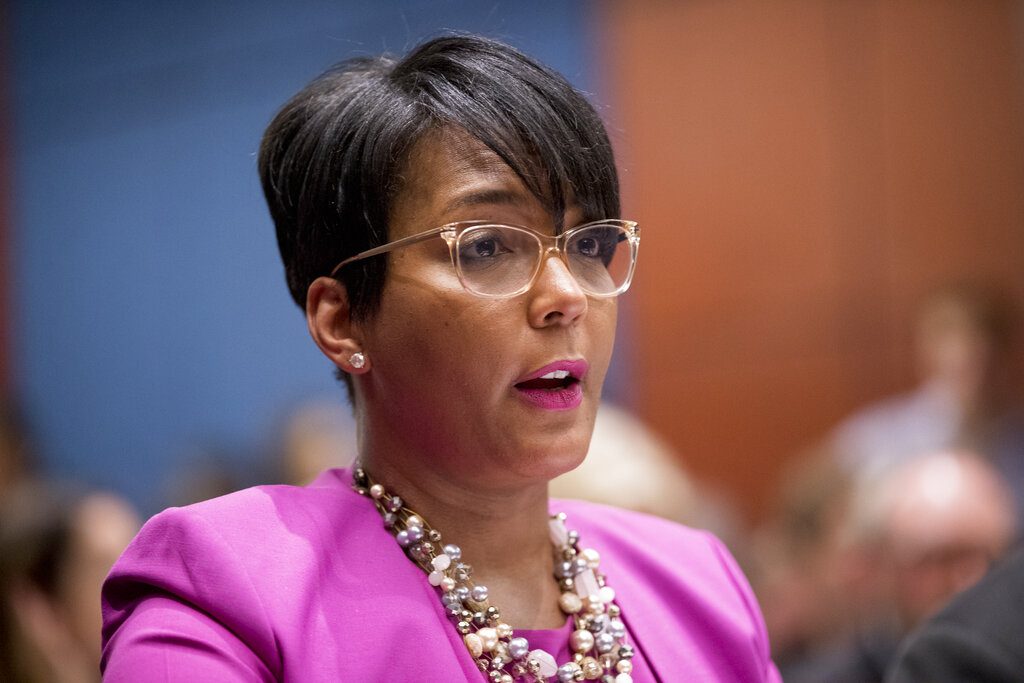
As some activists in the city, and across the country, call for it, Mayor Keisha Lance Bottoms says she will not do it because most of the budget goes to salaries, pensions, worker compensation and capital costs. Bottoms said she wants police officers to have a decent salary and be able to afford a home, but says she will divert resources from corrections to social services.



